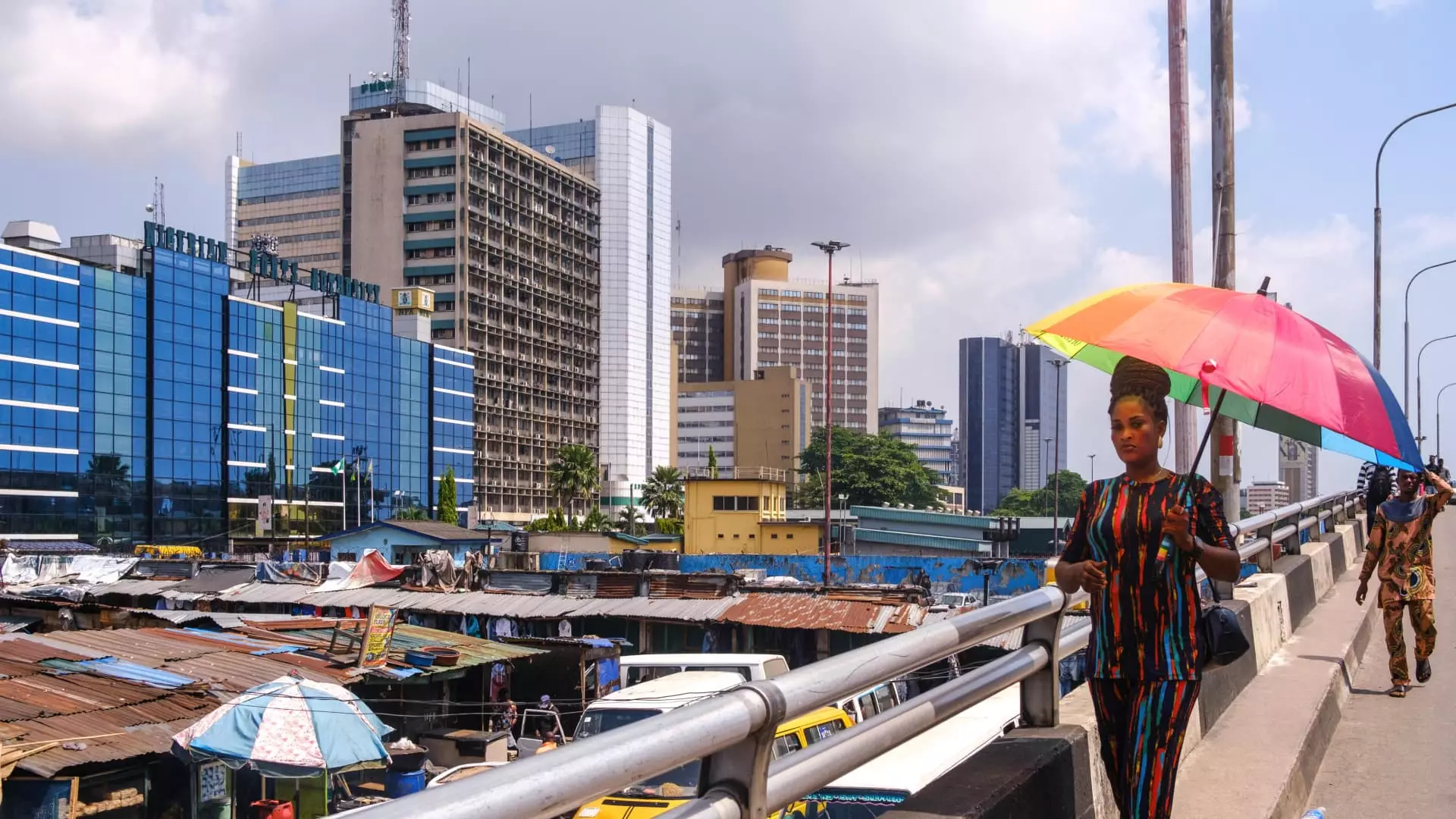The recent decision by the Central Bank of Nigeria to increase its key interest rate by 200 basis points has significant implications for Africa’s largest economy. This move comes in the wake of a historic currency crisis and soaring inflation rates, prompting policymakers to take action in an attempt to stabilize the economy. Governor Olayemi Cardoso highlighted the need for continued tightening to address the issue of runaway inflation, signaling a commitment to restore credibility and combat rising prices.
Economists and analysts have weighed in on the decision, with some viewing it as a necessary step to address the inflation problem. David Omojomolo, an Africa economist at Capital Economics, sees this as evidence of officials’ aggressive stance to tackle inflation. While the increase was smaller than the previous adjustment, it underscores the ongoing fight against rising prices. However, concerns have been raised about the potential impact on economic growth due to tighter monetary policy measures.
Looking ahead, it is anticipated that further rate hikes may be on the horizon as Governor Cardoso aims to bring inflation under control. Capital Economics forecasts additional 100 basis point increases at upcoming meetings in May and July before the tightening cycle concludes. This approach is geared towards stabilizing the economy and restoring confidence in the financial markets. The central bank’s efforts to clear a backlog of imports have already shown some positive results, with the naira currency recovering ground against the U.S dollar.
Minutes from the central bank’s February meeting shed light on the deliberations that culminated in the rate hike. Committee members expressed varying views on the drivers of inflation and naira weakness, influencing their decision-making process. While the MPC ultimately opted for a 400 basis point increase in February, there were dissenting opinions calling for smaller or larger adjustments. Governor Cardoso’s advocacy for a 425 basis point move highlighted the differing perspectives within the committee.
The decision to raise interest rates underscores the delicate balance between combating inflation and supporting economic growth. While tightening monetary policy is crucial to curb rising prices, there are concerns about the potential impact on the economy. The need to restore the central bank’s credibility and attract foreign investment is weighed against the risk of stifling growth through aggressive rate hikes. Finding the right balance is essential to navigating the challenges facing Nigeria’s economy.
The recent interest rate hike by the Central Bank of Nigeria reflects a proactive approach to address the country’s economic challenges. By prioritizing the fight against inflation and restoring credibility, policymakers are demonstrating their commitment to stabilizing the economy. However, the road ahead will require careful consideration of the impact on growth and the effectiveness of monetary policy measures. As Nigeria navigates these challenges, a strategic and balanced approach will be crucial in ensuring long-term stability and growth.

